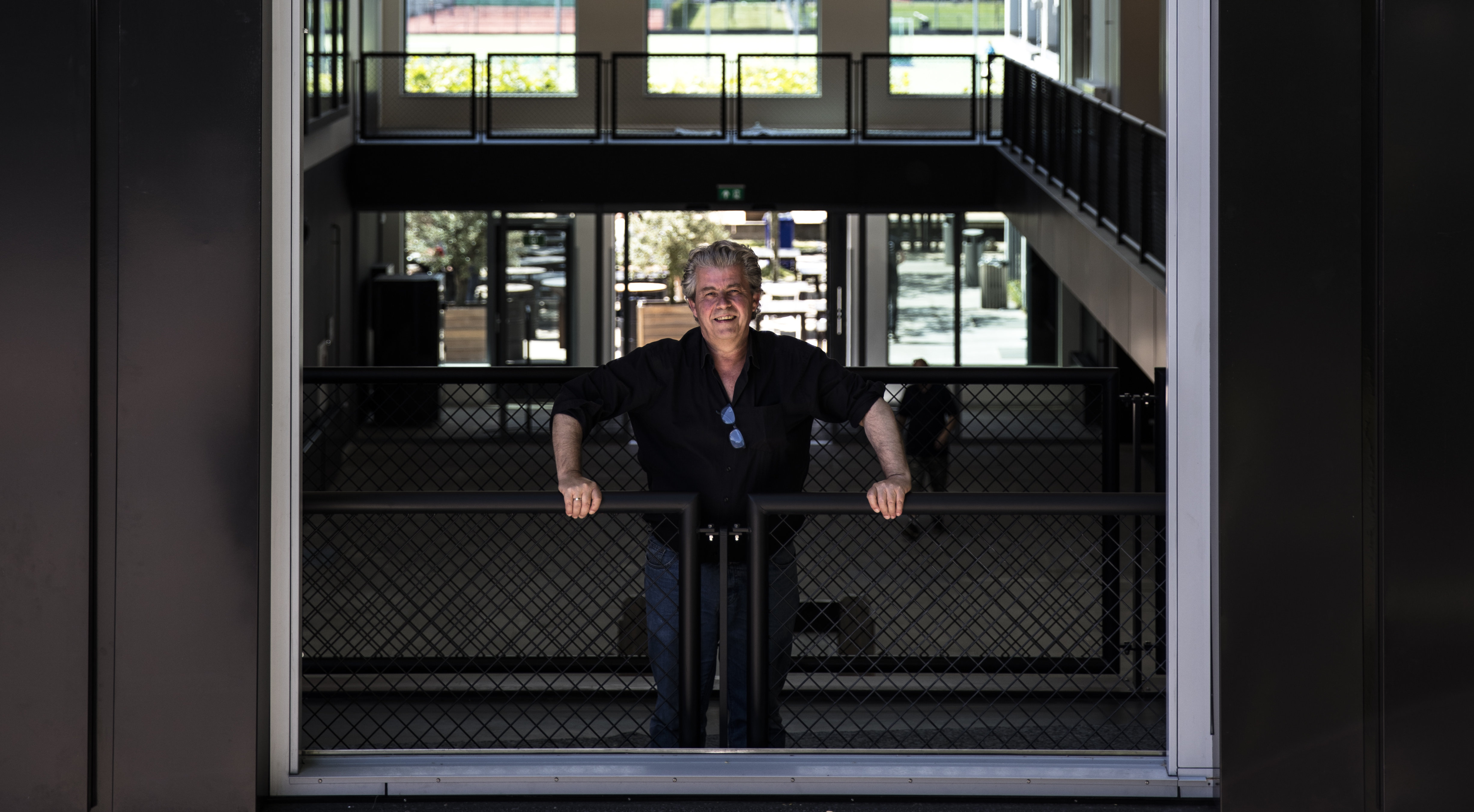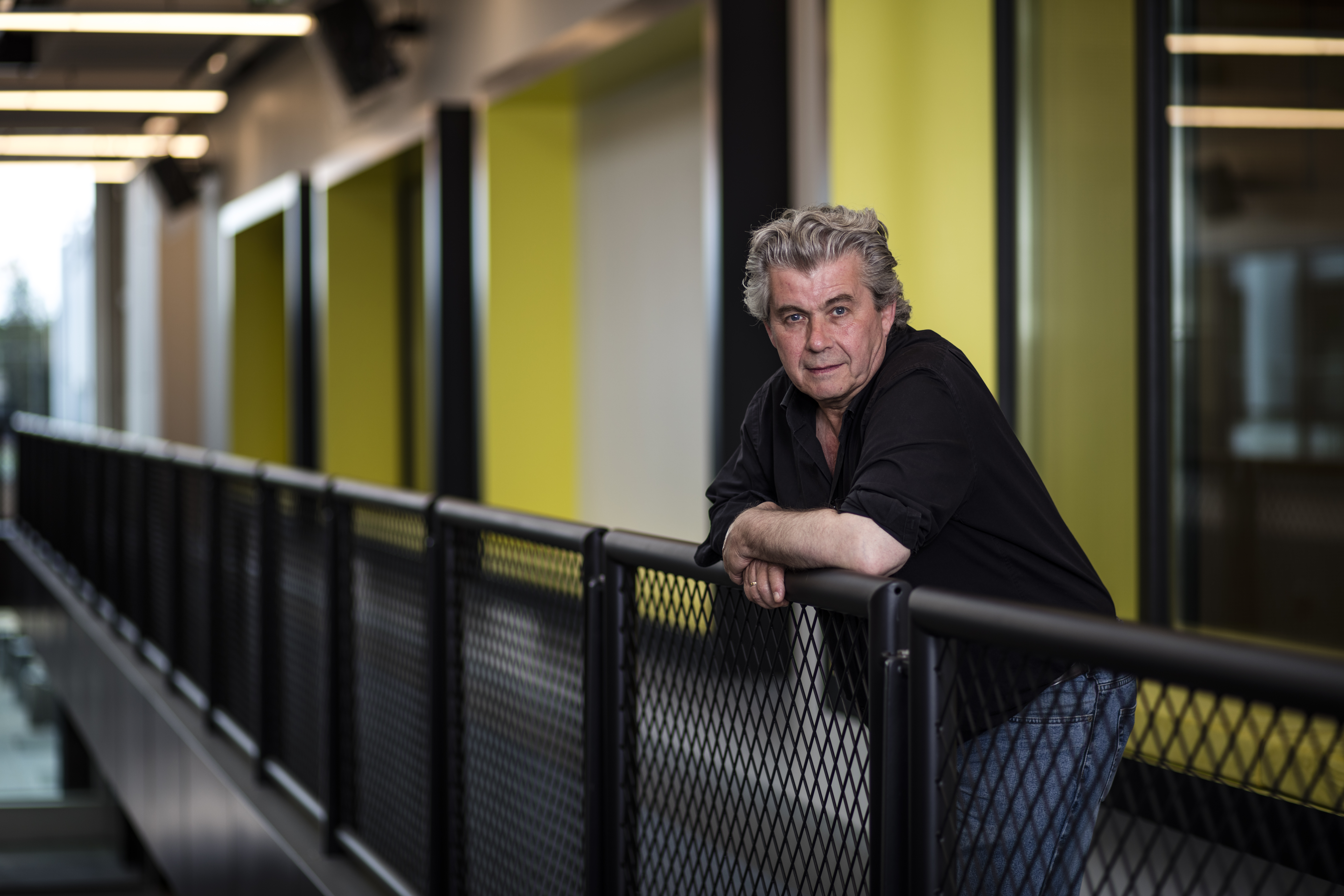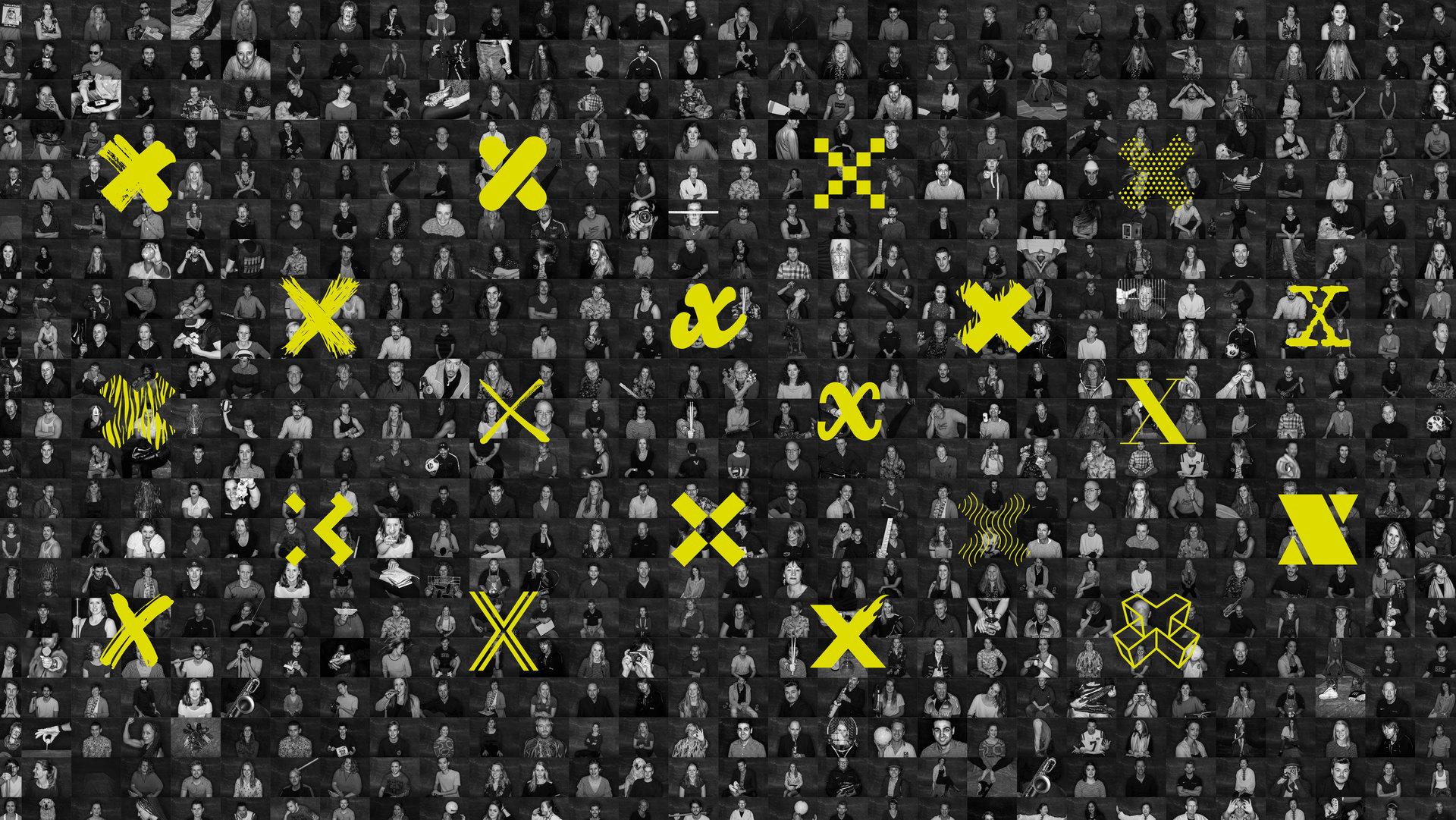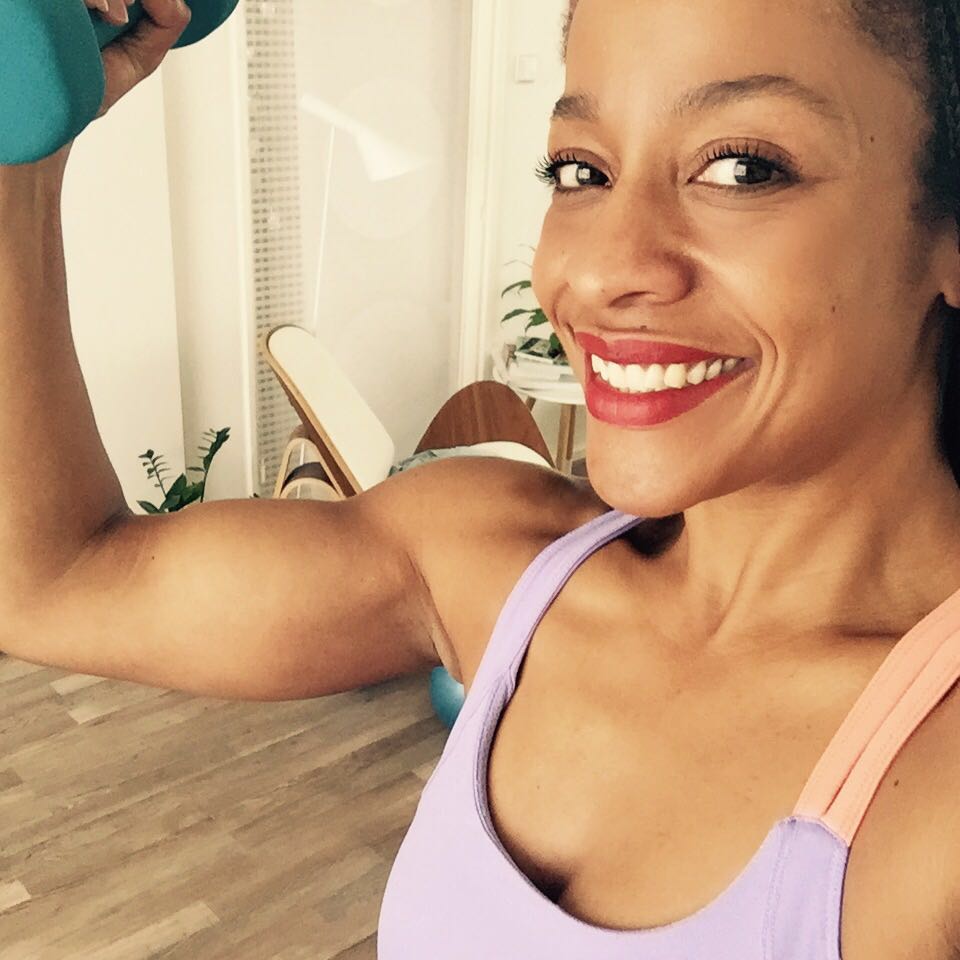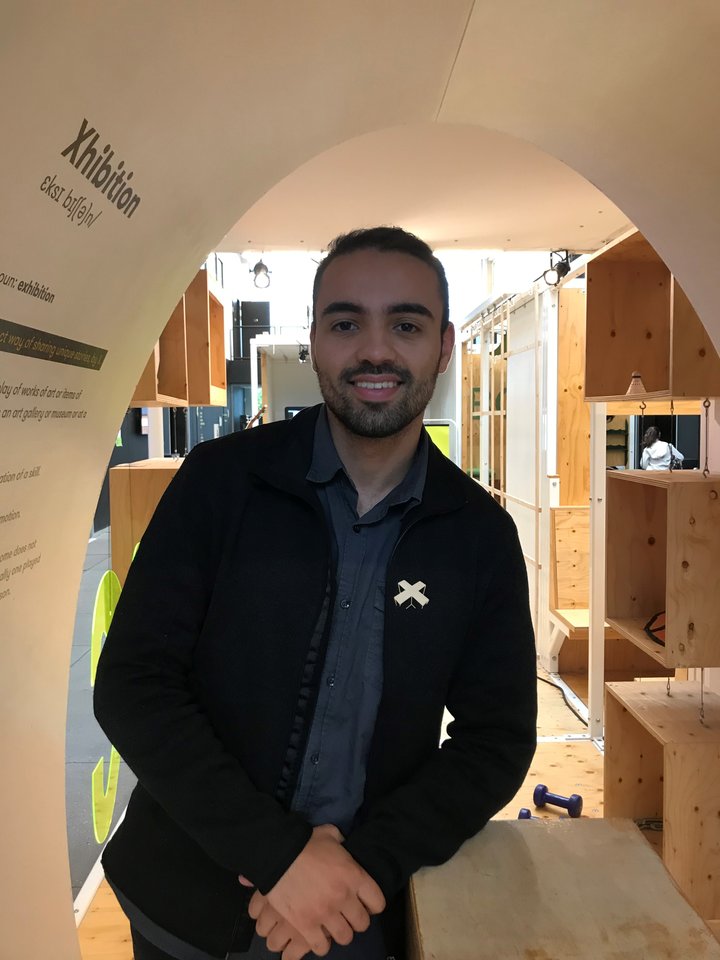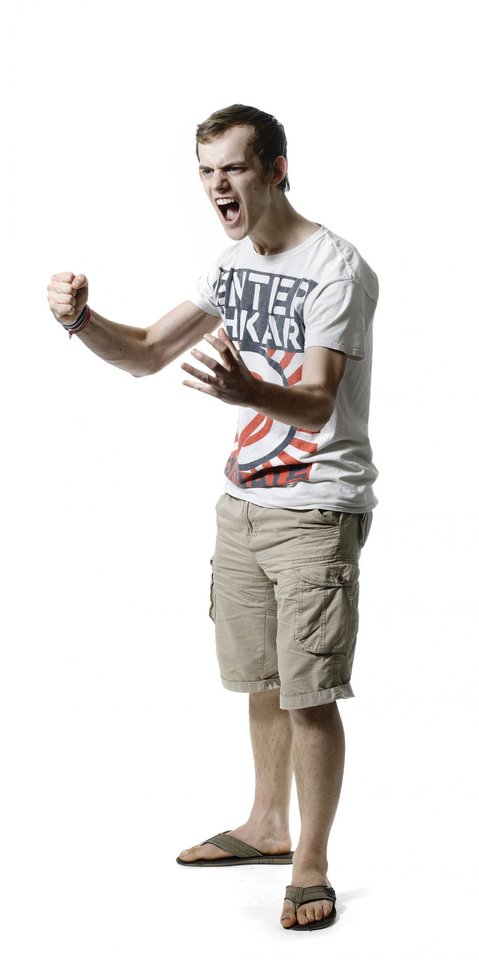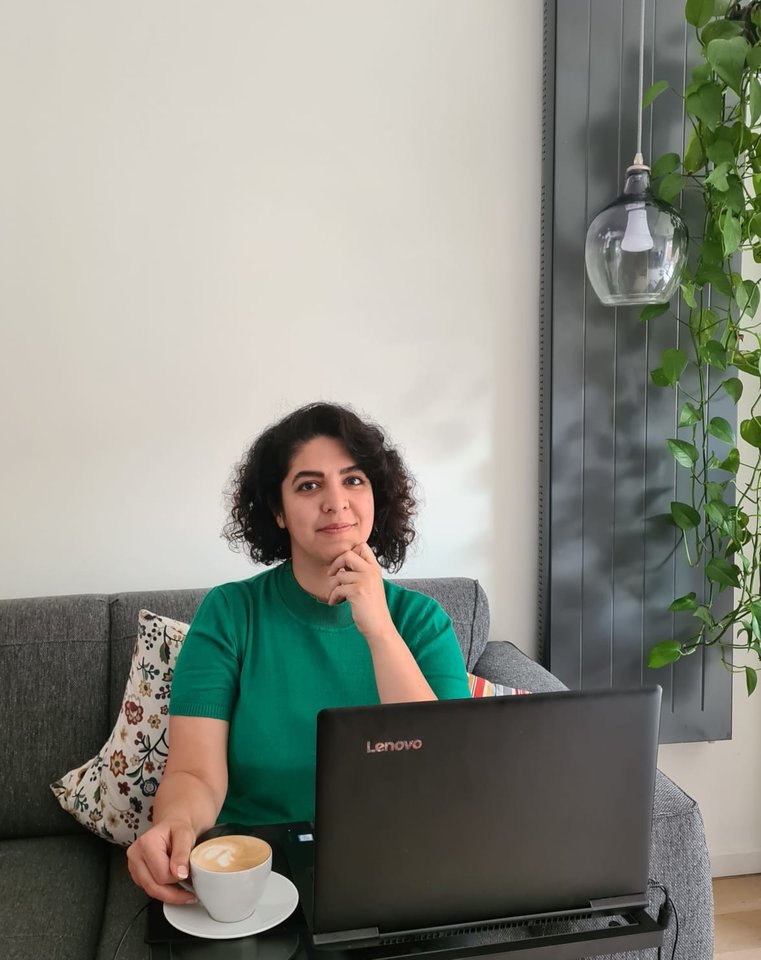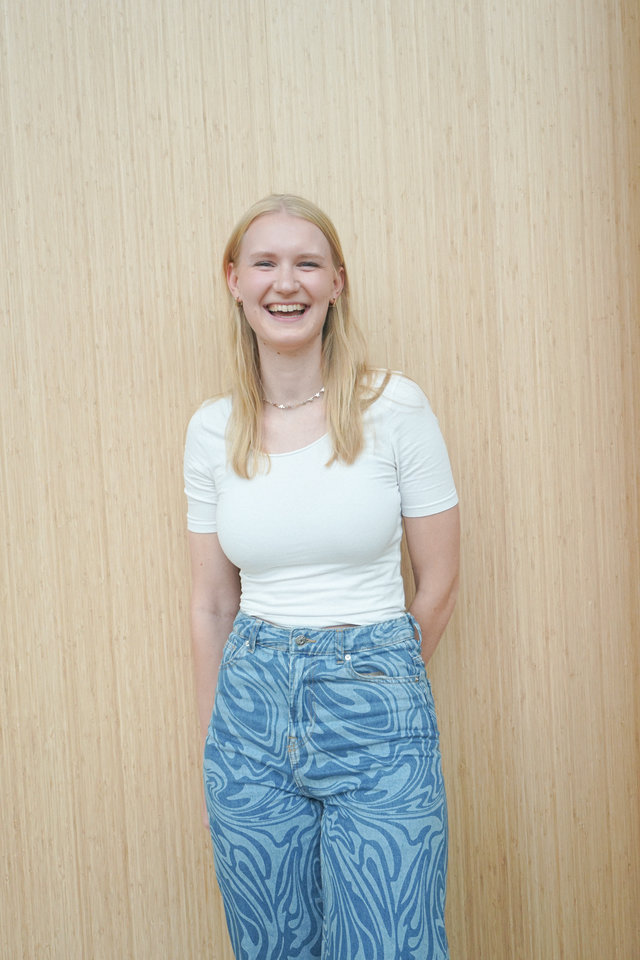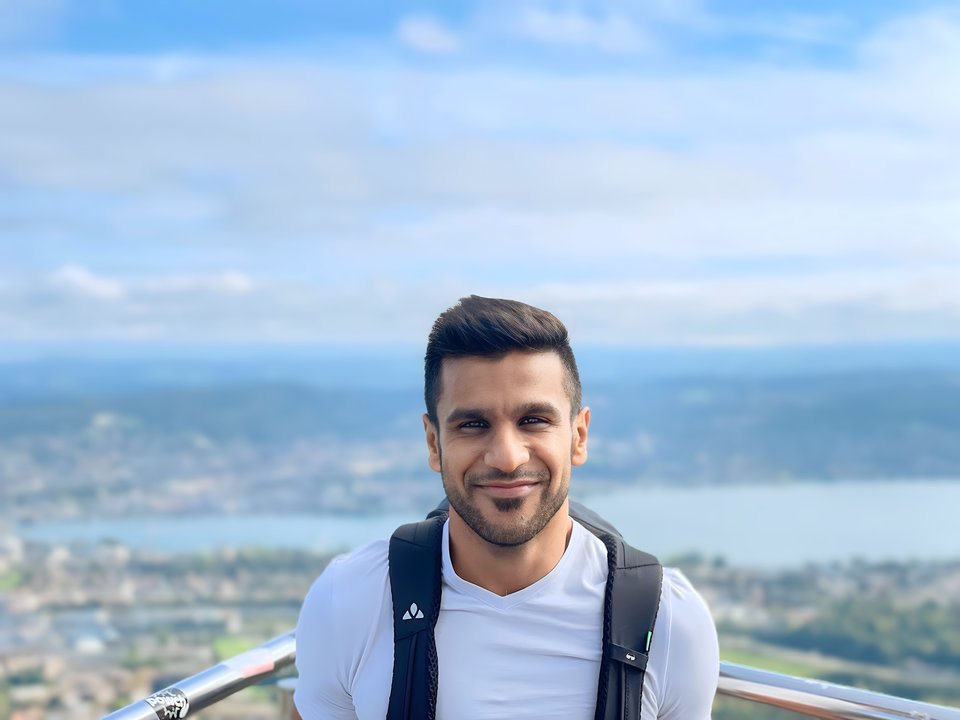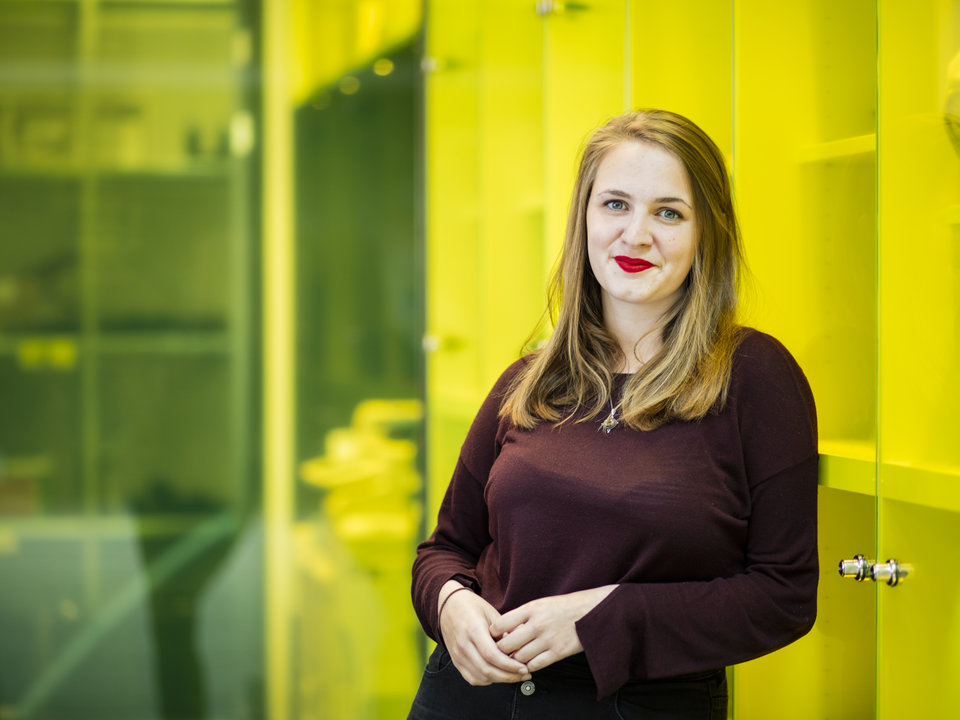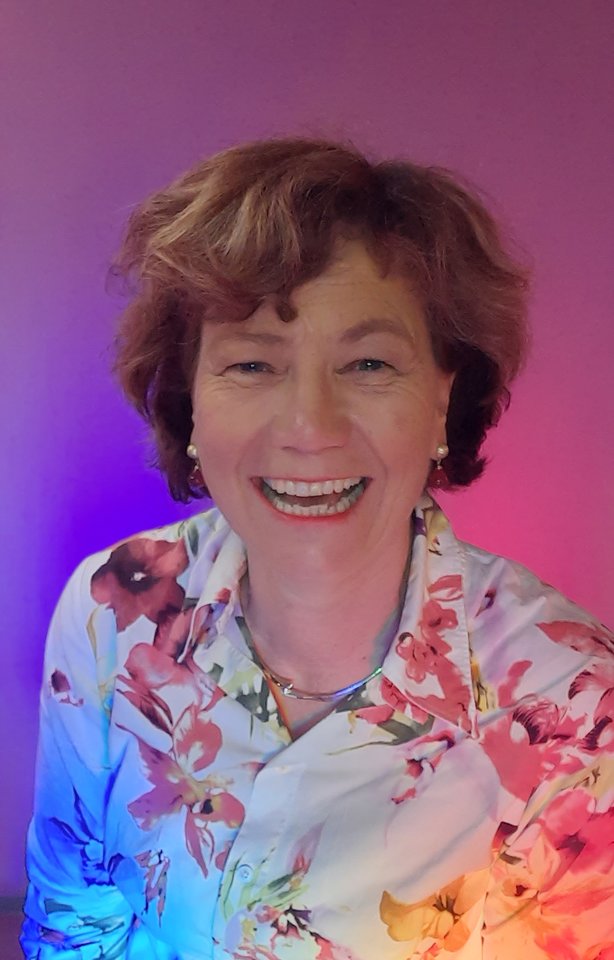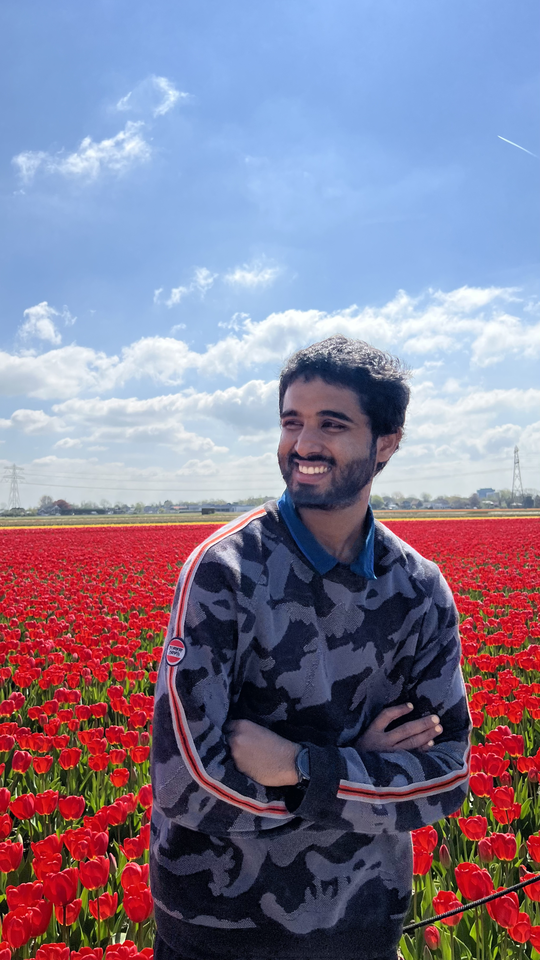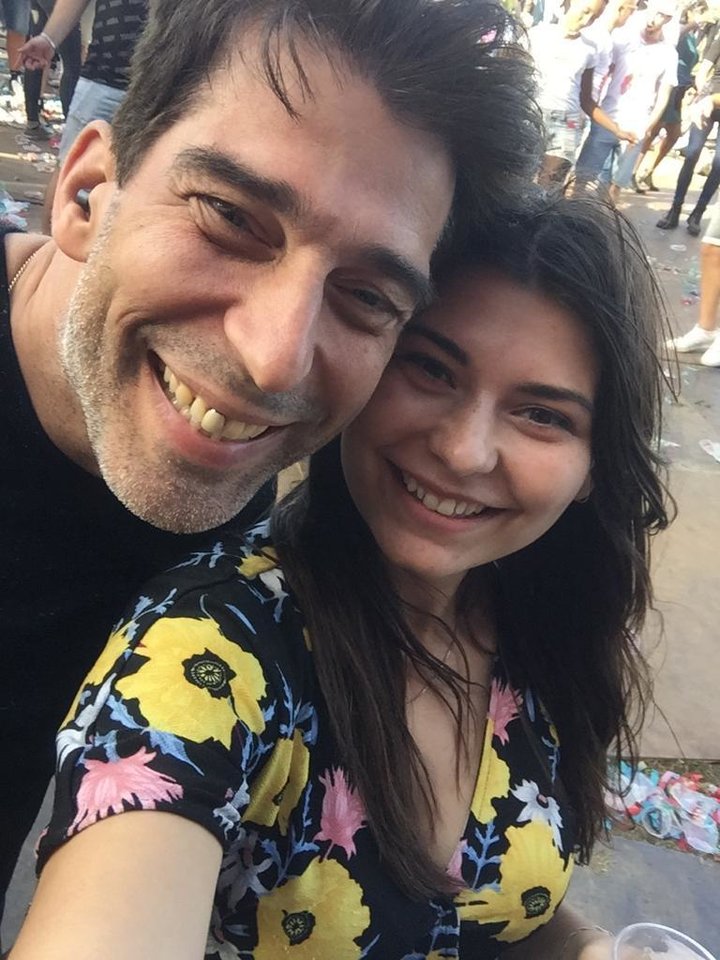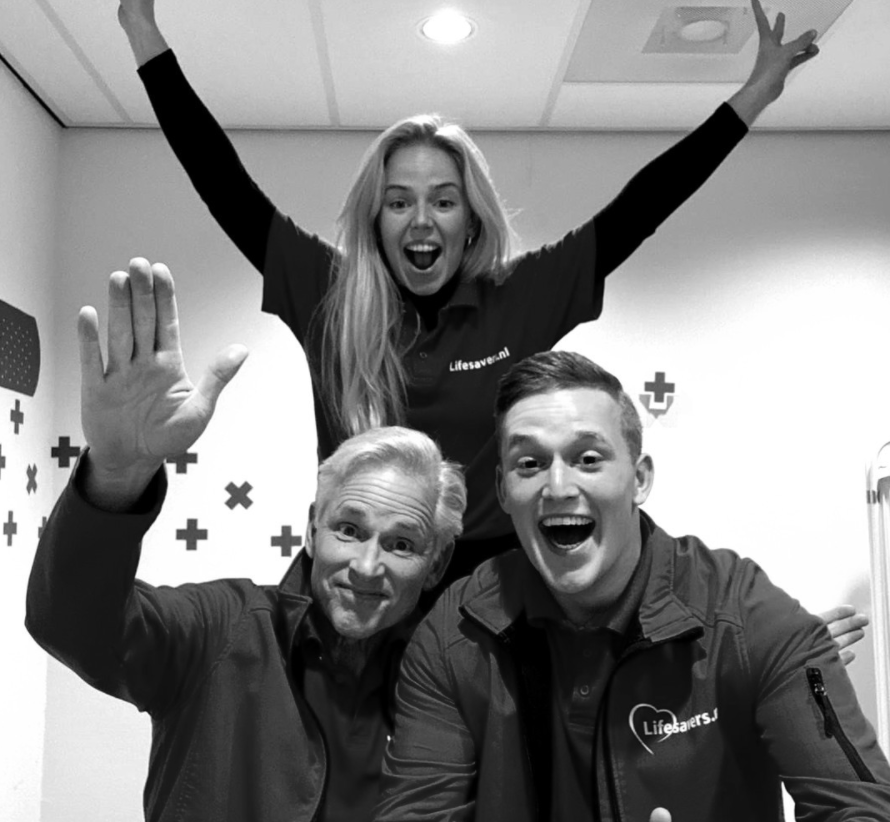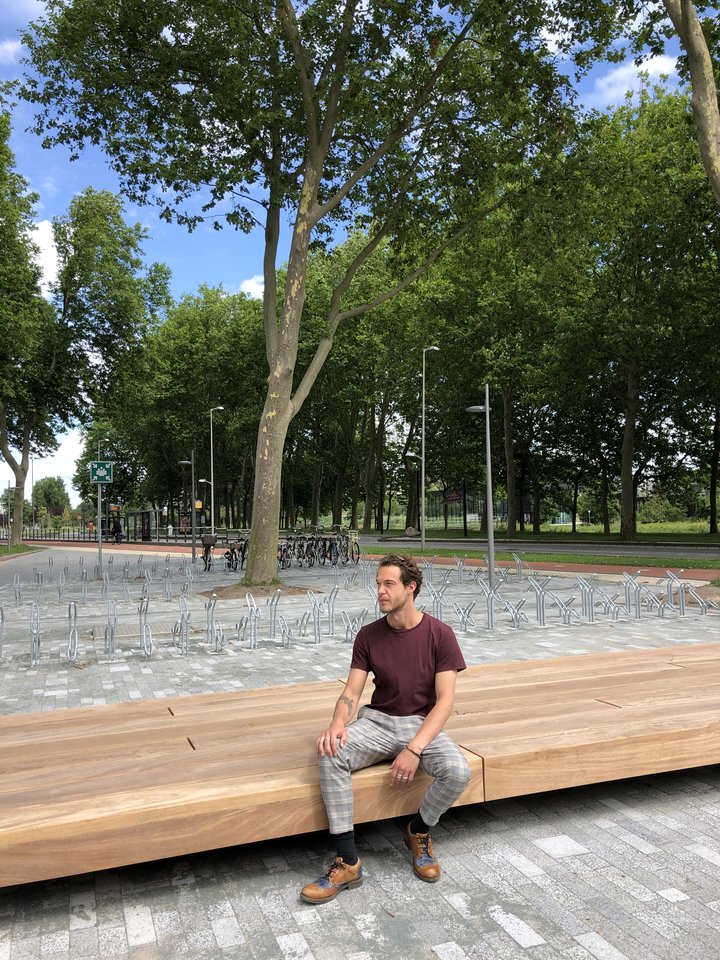Last Monday, Samantha Liebregts took over from Raymond Browne as Head of X. On 23 June, he will officially retire from TU Delft after 44 years of service. In honour of his upcoming retirement, we therefore dedicate this item to him and his thought leadership.
When did your journey at X begin? And what dreams did you have for this part of campus?
The conductor of Krashna Musika, Cees Rotteveel, wanted to set up something similar to Amsterdam’s Crea in Delft and was looking for assistance. He found me through my sister. I had just moved back to The Hague from Amsterdam and had just found "the light switch" of life. I was mostly enjoying my freedom and had no real plan at the time.
Cees and I clicked and it seemed fun and interesting to set up a cultural centre in Delft together. So, I said yes for a year, because at the time I thought I wanted to do something else after that.
The first months we drove around the country to visit possible "examples" and had long conversations about who we were and what drove us. We each enjoyed our contrasting worlds. Cees was a choral conductor and a teacher of choral conducting (after several years as a priest in the monastery), while I had just returned from Amsterdam’s punk and squatter scene. We were interested in and open to each other's worlds.
From that, a shared view of what we wanted in Delft also emerged. Although our first mission statement still said something about promoting the cultural climate, we were concerned with (the importance of) the freedom of every person to be who they want to be and to develop and express themselves.
With some bluffing, we managed to open the Music Centre in September 1979. In the old TU Delft building on Nieuwelaan, this grew into the "Muzich Centrum”, which eventually moved to a new building on Mekelweg next to the then Sports Centre in 1993. Cees sadly passed away shortly after his retirement in 2000. The memorial plaque for Cees at X reads, "The right of every human being to express something".
By that time, I had taken a job in HR at TU Delft, but returned to the newly formed Sport & Culture unit in 2003. Two things were clear to me then: 1. TU Delft considers these things important enough to continue supporting them even in financially difficult times. 2. It was time to establish why they were so important together, more precisely and for the longer term.
During a 2005 debate on that question with students, academics, the executive board, professional athletes and artists, the academics framed Sport & Culture as one of the few places that offered broad academic education at the time. They therefore proposed making participation compulsory for students. The students vehemently opposed this, which executive board member Paul Rullmann dubbed the "be spontaneous" paradox.
This led to the observation that - in addition to the broad academic training provided by the faculties – the young people studying at TU Delft should have a place to go for personal development, beyond simply pursuing their degrees. Sport and Culture aren’t goals in this regard, but important resources (not the only one).
Has X been a dream come true?
I have witnessed the heady growth in participation and increasing diversity. The extension of and upgrades to the accommodations that opened in 2018 provided an opportunity to focus even more on personal development. It broadened programme offerings beyond sports and culture to include a comprehensive range of current topics that are of interest to young people and meet their needs.
The moments when the programme is in full swing and the cafe and terrace are packed on a summer evening do give me the feeling that we are heading in the right direction. And the quotes on the stairs after the entrance at X give me goosebumps.
What is your fondest memory at X?
There are so many. I'll mention a few that come to mind first:
- The first six months with our office (and pinball machine) in the attic at Virgiel.
- The long queues at the start of course registration before they were digitised.
- The (wild) parties at Nieuwelaan with Delft student punk band the Straks as the final act.
- The anonymous note I found on my desk one morning saying "Raymond I love you".
- When, three months after my return, I saw the tractors driving to renew the fields.
- The crew drinks at 5am after the first Summer Festival in 2007 and the Summer Festival with De Jeugd van Tegenwoordig and Kiteman.
- The Chinese student who, during the season finale, sang a song for the first time in front of an audience which she rehearsed during her singing lessons, visibly achieving a huge victory for herself.
- The enormous personal growth I saw a Proteus chairperson make during her board year.
- The entire building process from decision-making to completion.
- The launch of X in 2018 and the person who booed loudly when Tim van der Hagen used the word excellent in his opening speech.
- The fantastic colleagues at X and being allowed to be part of their often-spectacular personal development.
- The personal conversations I sometimes had with students.
And many more!
What has been the biggest change in the time you've worked here?
At Nieuwelaan, we started the first year with 300 participants and maybe 10 teachers. The day after the first OWee party, two of us were tearing down a stage and mopping the halls.
X now has 16,000 participants. And X now employs about 400 colleagues (teachers, colleagues who are still studying themselves and full-time colleagues). It has been quite a journey.
I think uniting the Sports Centre and the Cultural Centre – strategically, physically and organizationally - into (what eventually became) X, has been the biggest change. And moreover, one that strengthened X's position within and connection with TU Delft.
How do you feel about leaving X?
After 44 years, I am ready to leave. So I am looking forward to it, though with a tinge of sadness. A bit like when our children left home. And I feel that X is ready for that change. In the new strategy, anchoring the position within TU Delft and further strengthening the (personal) relationship between the target group and X are focus points. Samantha Liebregts is a great fit as the new head of X, so I’m leaving X in full confidence that X is in safe hands.
What do you hope to see happen at X (from a distance) in the coming years?
I hope that X will continue to change constantly in response to what is happening around us. When I visit X again after I retire, I hope to find an organisation that does not behave like a classical (educational) organisation, but has a humane identity and aims to enter into open relationships with young people without moral judgements or dominant moral messages. A home and sanctuary where young people can express themselves freely and find ways to cope with (and escape from) the pressures they feel. A place where they can "playfully" explore themselves in whatever way they want and discover their relationship with themselves, others and society. A place where they are seen, noticed and recognised as human beings and where they can shape their own personal development and identity through encounters, facilities and content. In short, a personal studio shimmering with hope and faith in the future.

